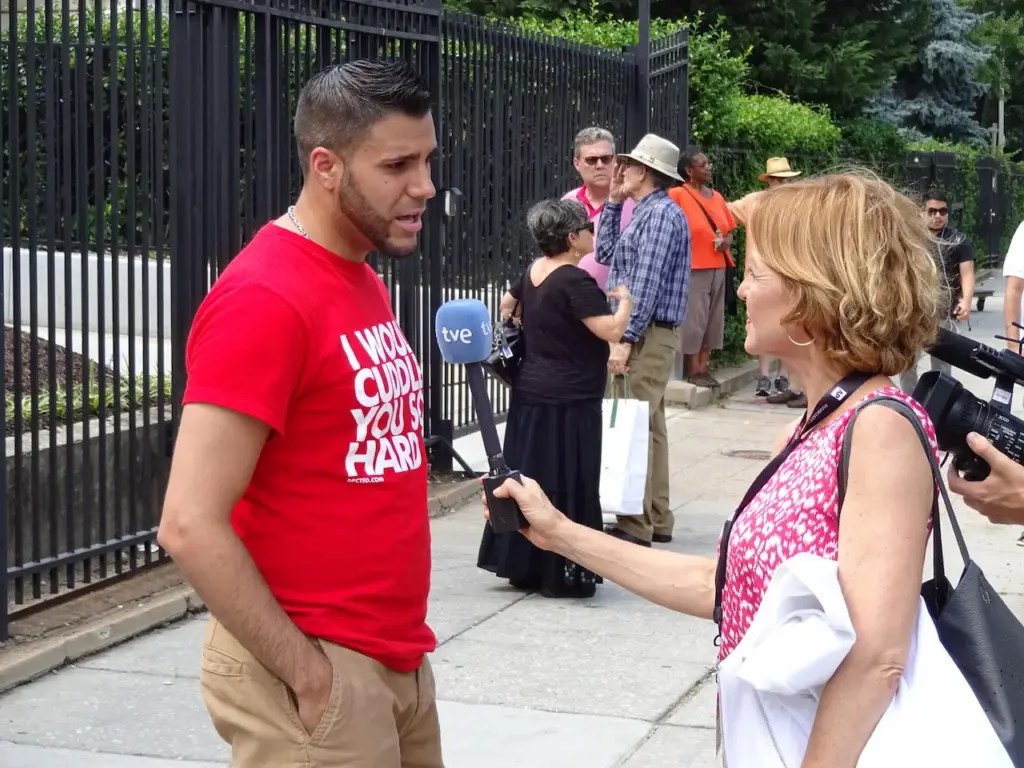The Problem with Citizen Journalism
How can you get a journalist to become more passionate? Tell them that citizen reporting is going to make them lose their job. It’s a broad generalization but I’ve had at least one journalist tell me that “it’s just not journalism” every time I mention citizen journalism.
Citizen journalism is a powerful tool in today’s digital era for shaping public opinion and spreading news. Anyone can become a journalist by using social media and smartphones to report on local events. Due to the limited training, citizen journalism is facing several challenges.
Would the hard-working mechanics and chefs in the world be upset if we asked a “citizen” to change our oil or invite us for dinner at the weekend? Who knows, but it’s unlikely.
Many journalists attend college to learn the trade. Some journalists spend years perfecting their craft. They work at computers or stand in the rain to report on car accidents. But then they are outdone by a Yahoo with an iPhone and Flip Mino.

Professional journalists can’t get upset by the word “citizen”. We’re all citizens, after all. You could get technical and say that all journalists are “citizens” if you wanted to. That would be ridiculous, and it’s not the real issue.
Truth be told, the world has changed. In the past, as citizens, we relied more on professional journalists for information. In this sense, I would argue that we still rely on professional journalists. After all, the average “citizen” is not equipped to cover the real issues in the same way as you and me. You can’t ignore the value of the content that you and I create as citizens… spokespersons or eyewitnesses. Who’s to say my content isn’t as valuable as what’s available on newsstands?
It becomes more difficult to determine what we should believe. For a long period, traditional journalism was based on the assumption that information was accurate. The accuracy of the information was checked and double-checked. The stories were edited using an inverted pyramid. This gave us all the news we could print in the first 3 paragraphs. Anyone can now write, record or present anything as fact. We are left to act as editors. We’re all citizen editors in this respect. Most people don’t take the news at face value any more, especially since anyone with an Internet connection can hop online and check out other news sources.
Citizen journalism
Citizen journalism is journalism conducted by individuals who are not journalists, but who use social media, blogs and Websites to disseminate news. Citizens journalism is gaining worldwide popularity despite concerns that citizen journalists may not be as trustworthy as professionals. Citizens have been providing instant text and video reporting on the ground in disaster zones. In countries that are experiencing political turmoil, and in many cases in countries with government-controlled print and broadcast media, people have used various technological tools to exchange information. In the background, there was a debate about whether or not the term Citizen Journalism is accurate.
Since then, the Internet has been responsible for thousands of blogs and news sites. While struggling with declining readership, traditional news media jumped into the fray by launching their Websites, and blogs, and inviting readers to submit community stories to their websites. Some groups created their own “hyperlocal news” sites to report on local events or topics that are of special interest. These stories were not covered by the larger media.
Citizen journalism is a key component of 21st-century political events. During the Iranian Presidential Election protests in June 2009, the Website and Twitter emerged as a new outlet for information dissemination. The tweets from de-facto reporters showed that nontraditional media can circumvent censorship. During the 2011 uprising in Egypt, activists who protested the government of President Hosni Moubarak often formed groups on social networking websites.
Types of Citizens Journalism

There are four types. There are examples of each type in both professional journalism and citizen journalism.
- Broadcast
- Internet
- Photo
Print Journalism
Print journalism is the reproduction of a written report. Newspapers and magazines are published by professional journalists in hard copy and online, while citizen journalism includes newsletters, zines, posters and flyers created by users.
Broadcast Journalism
Broadcast journalism is a form of news reporting that uses audio or video formats. It’s usually featured on TV, radio, or the Internet. Typically, it is delivered via television, radio, or the Internet. Citizen journalist broadcasts can be found mainly on social media and independent media.
Internet Journalism
Internet journalism is the publication of news online. It’s usually done on a website for a news network and then shared via social media. Bloggers, websites and social media are all ways that citizen journalists publish their content on the internet. The Internet is the most popular format for citizen journalism.
Photojournalism
Photojournalism is a way of reporting the news visually. It can be done via print, broadcast video, or the Internet. Professional photojournalists use their images to publish in magazines, newspapers, television or news websites. Citizen journalists can share their images online as well as print them or post them.
Uncovering Overlooked Stories
Citizen Journalism is powerful because it can bring out Diverse Perspectives, and shed light on stories traditional media might overlook.
This freedom can also lead to a bias in the reporting and a potential obscuring of the truth.
Diverse Perspectives are Shown
Citizen journalist brings to light a variety of diverse viewpoints. This helps bring stories to the forefront that would otherwise have gone unnoticed. The traditional media often focuses on mainstream stories and leaves out many important stories. Citizen journalists have the freedom, however, to explore niche communities and topics that are usually ignored by larger news organizations.
Citizen journalism, by showcasing diverse perspectives, enriches media landscapes and gives marginalized voices a chance to be heard. This approach leads to not only a better understanding of different issues but also inclusivity and representation.
Citizen journalists are often in direct contact with the communities that they cover, which allows for more nuanced and authentic storytelling. This human touch is a great way to humanize complex topics and draw attention to local issues that have been overlooked by traditional media.
Citizen journalism is a powerful tool for revealing untold stories and creating a more diverse and inclusive media environment.
Bias Is Potential

The role of citizen journalism in revealing overlooked stories, that traditional media may overlook.
Citizen journalists, driven by their passions or experiences, can explore niche issues and marginalized communities, which mainstream media may overlook. This unique perspective allows citizen reporters to bring stories to light that would otherwise be ignored or underreported in traditional media, adding depth and diversity to the overall media landscape.
This freedom and connection to the individual can lead to bias in reporting. Citizens may be biased by their background, beliefs or affiliations. This could affect how they report a story. To mitigate biases, citizen reporters must be transparent with their viewpoints as well as maintain ethical standards.
The ability of citizen journalism to uncover stories otherwise untold, despite the risk of bias, is an important advantage of this type of media. Citizen reporters are important in creating a media environment that is more inclusive by bringing to light stories that have been overlooked.
I have no issue with citizen journalism. I enjoy the idea of receiving information from informed citizens. Also, I value the information that I receive from journalists. The two approaches to disseminating or reporting information are coexisting today. You’re missing the bigger picture if you are one of those who have a problem with citizen journalism.
What better way to demonstrate freedom of speech or even freedom of the media, than through social media and citizen journalism? We are free to express ourselves as we please. You decide if the information is valuable or not. If not, move on. Continue reading if you are interested.
What do you think of citizen journalism? Do you believe it is less valuable than a professional journalist? Which information sources do you trust the most?


